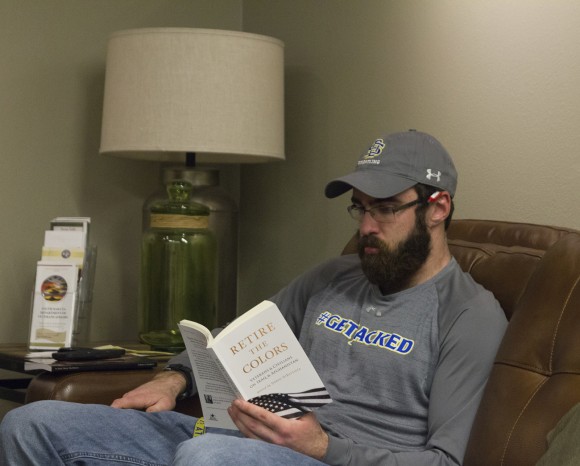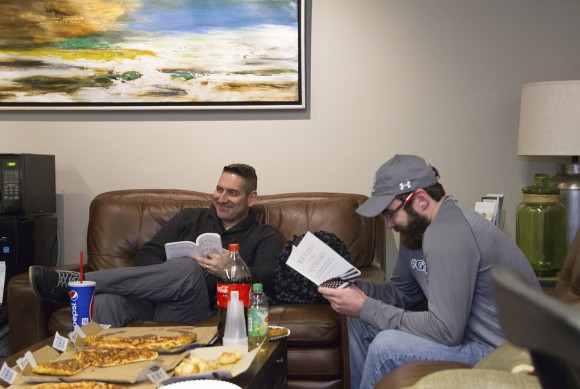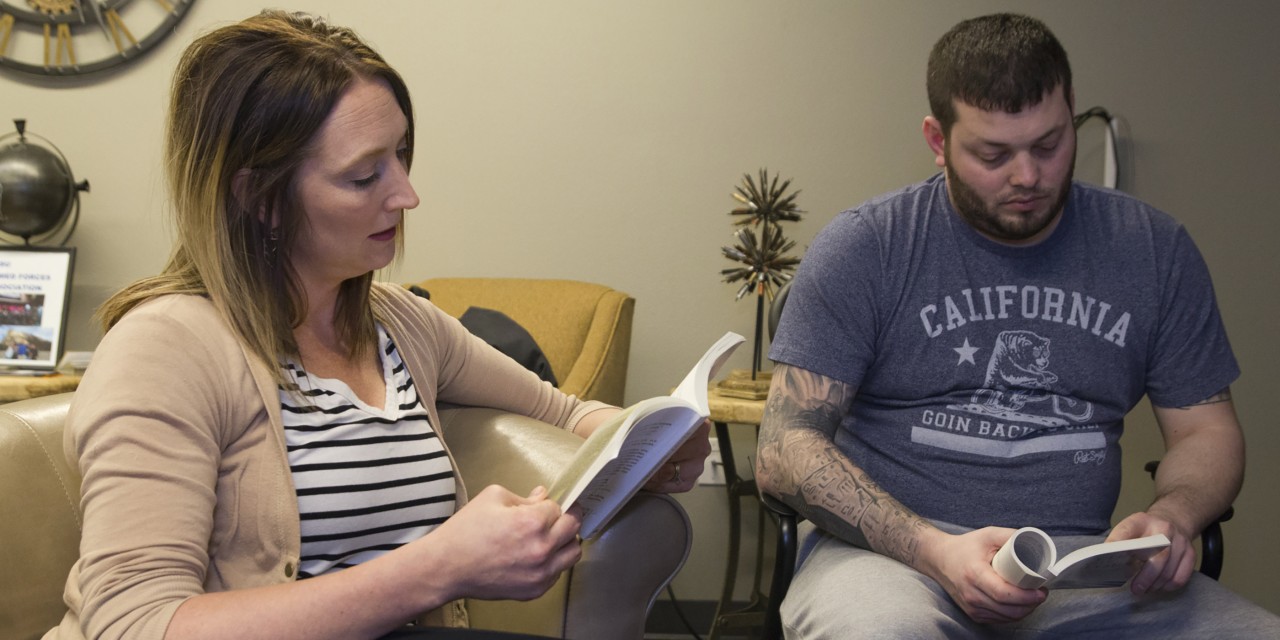Through guided discussions of literature and films about war, South Dakota State University (SDSU) English faculty are helping support veterans and their caregivers. Founded as a program for staff members at the Sioux Falls Veterans Affairs Medical Center, programming has now expanded to support veterans at the medical center in Sioux Falls and on the SDSU campus in Brookings.

SDSU Professor Jason McEntee believes in “the power of narrative” to help veterans, families, and communities affected by war. “Narratives, be they literature or film, fiction or non-fiction, blogs, paintings, poems, and so forth—narratives have for centuries chronicled our wars,” McEntee explains.
“But what they also do is help us understand the soldier, help us honor him or her and the sacrifices they’ve made. To help us understand the families affected by war, and to help us understand the communities affected by war.”
Literature and films about the experience of war articulate these difficult narratives, enabling veterans to share and discuss their experiences. McEntee notes that good war literature explores the question of what veterans do with their experiences in wartime—and more importantly “how can we use those experiences to help, first of all create a conversation about what’s going on, and second of all to create a larger understanding of the awfulness of war.”
By mobilizing the power of narrative, SDSU faculty have supported staff members at VA hospitals and veterans themselves both at the hospital and on campus—ultimately contributing to the reconfiguration of veterans’ services at SDSU.
For Veterans at the VA
In 2010, the Maine Humanities Council (MHC) brought the Literature and Medicine program to Department of Veterans Affairs Medical Centers around the US.
In South Dakota, MHC worked with the South Dakota Humanities Council and SDSU English faculty at the Sioux Falls VA Medical Center. Meeting after work at the VA, people who work in the same building become colleagues. They learn from each other. They learn about their patients and the experience of coming home from war. They develop a greater appreciation for the different roles played by all hospital staff.
While some participants may be veterans or connected with veterans, a nationwide study of the Literature & Medicine program’s VA initiative demonstrated that all are impacted.
In the 2011 University of Southern Maine study, participants reported medium or great increases in empathy for patients (82%), interpersonal skills (62%), communication skills (51%), job satisfaction (61%), and cultural awareness (59%). Increases in these areas improve quality of care for veterans. The program measurably enriches hospital work environments, which improves the quality of health care both directly and indirectly for the Medical Center’s veteran patients.
For Veterans on Campus
SDSU serves a community of over 500 students connected with the United States Armed Forces, including veterans, service members, and dependents. “We have a very high population of veterans, in particular National Guard soldiers,” McEntee explains. With the success of the Literature & Medicine program at the Sioux Falls VA, extending programming to veterans themselves on campus and at the medical center represented a natural next step.
On campus, this work has taken the form of the Veterans' Writing Workshop/Book Club. With the support of the South Dakota Humanities Council and the SDSU Veterans Affairs Center, SDSU English faculty work directly with veterans to facilitate reflection on the experience of war through creative writing and the discussion of literature and film.
Meetings harness the power of narrative to enable reflection on military experiences. Whether it is through the creation of narratives or responses to existing literary and film narratives, programming helps members of the armed forces community express themselves. “Each meeting provides connection with other students, faculty, and community members with a military background,” the program website explains.

Participating SDSU students find the experience helpful beyond the pages of the text they are discussing.
Undergraduate aviation major Paul McKnelly recalls that a simple conversation about an essay “turned into a conversation about life. I really recognized it right away as therapeutic to everybody that was there. It could be used as a tool for checks and balances—hey, how are you doing; how’s life; it was a great experience for me.”
The program helps veterans build a community among themselves, building on experiences that are often very different than their fellow students.
This programming has affected not only the students, but the university itself. It forms a part of SDSU’s outreach to veteran students, for which the University has been named to the top 10 “Best for Vets” among four year colleges by Military Times.
(Banner image: South Dakota State University English faculty lead student veterans in a discussion Dario DiBattista’s Retire the Colors, a collection of stories reflecting on the impact of wars in Iraq and Afghanistan. Image courtesy of University Marketing & Communications, South Dakota State University.)
